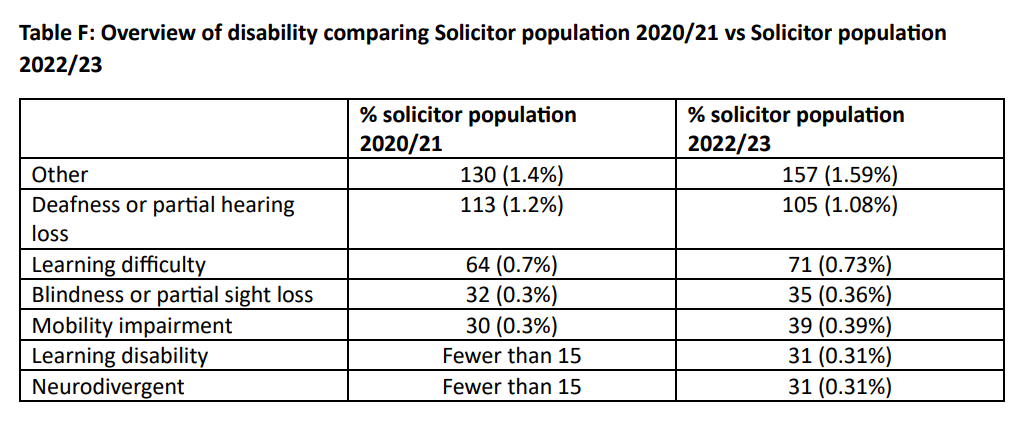Ethnic representation grew generally but was uneven for different minorities

The Law Society of Scotland has published its latest diversity data as part of an ongoing effort to better profile the legal profession in Scotland and track diversity changes in the landscape over time. Progress was common across areas of diversity such as ethnicity, sexual orientation, and socioeconomics.
The society incorporated questions on diversity into the annual practising certificate renewal process for the second time this year. The Law Society of Scotland first collected diversity data in the 2020/2021 practising certificate renewal period and has since sought to collect data every two years. The diversity data gathered by the society would also complement an in-depth ‘profile of the profession’ survey conducted every five years, the most recent of which is set to be published later this year.
Contributing data was made optional for purposes of renewing one’s practising certificate, while data gathered was automatically pseudonymised for members who did contribute.
More than 9,000 members, or around 80% of the law society, completed the diversity data survey for 2022/2023 in order to provide comprehensive insight into the current lawyer profile in Scotland. Members shared information about their ethnicity, sexual orientation, disability, religion, and social background – including their parents’ occupation and whether their education was state-funded – while also being allowed to tick the “prefer not to disclose” box or explain themselves when what they identified as was not enumerated under the Law Society of Scotland’s standard form and they opted to tick the “other” option instead.
The diversity data for 2022/2023 showed an increasingly diverse legal profession in Scotland. Key findings included:
Ethnicity
- Around 86.5% of Scottish solicitors are white – compared to 88% two years ago.
- At least 4% of the profession is from a Black, Asian or Minority Ethnic (BAME) background, increasing by 0.63% over the last two years. The Law Society of Scotland noted that given that 8% of members preferred not to disclose their ethnicity and another 1.5% chose “other”, it was likely that this figure was even higher.
- Of those aged 30 and under, at least 10% were from an ethnic minority background, up more than 3% since the 2020/2021 survey.
- The Law Society of Scotland charted “uneven” progress across ethnicities, with solicitors under 30 years old from a Pakistani background on the rise, while those under 30 from a Chinese background have dropped.
Religion
- Among solicitors aged 30 and below, 60% said they had no religion or were atheist or agnostic.
- The largest religious denomination in the Scottish legal profession was Church of Scotland (18%). Among solicitors under 30, it was Roman Catholicism.
Gender and Sexual Orientation
- At least 4.18% of the profession identified as LGBTQ+, which number rose to 6.6% of those lawyers aged 30 and below. In 2020/2021, only 3.2% identified as LGBTQ+.
- In 2022/23, over one-third of the solicitor population (67%) was state-educated.
- Almost 57% of solicitors were female, rising by two percentage points compared to two years ago.
- The society noted an ongoing struggle to attract “young men from an ethnic minority background” into the profession, although it noted a slight improvement in their representation in the legal profession in Scotland from 28% two years ago to almost one in three (32.63%) today.
Disability
- Over 5% of the profession had a disability such as blindness, deafness, or a mobility impairment, compared to 4.8% in 2020/2021.

The Law Society of Scotland president Sheila Webster said that while there was “only so much change” that could happen within Scotland’s legal profession in two years’ time, there was marked progress in every area of diversity data towards a more representative profession.
“Of course, there is more yet to do,” Webster continued. “But the data provides us a strong evidence base to help set effective policies to address the issues identified and measure our progress towards a more inclusive profession.”
The next set of diversity data will be gathered during the practising certificate renewal process of 2024.










